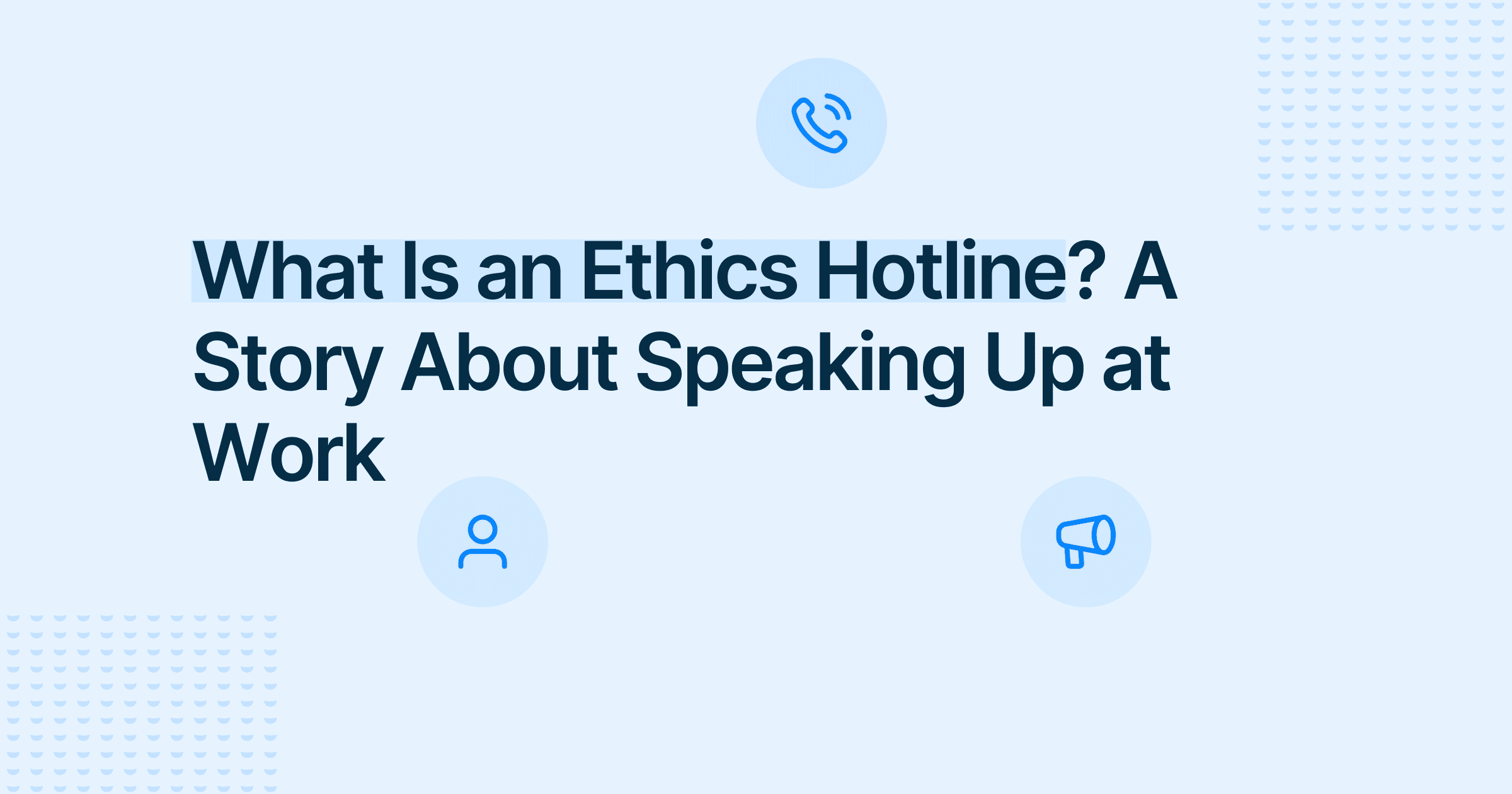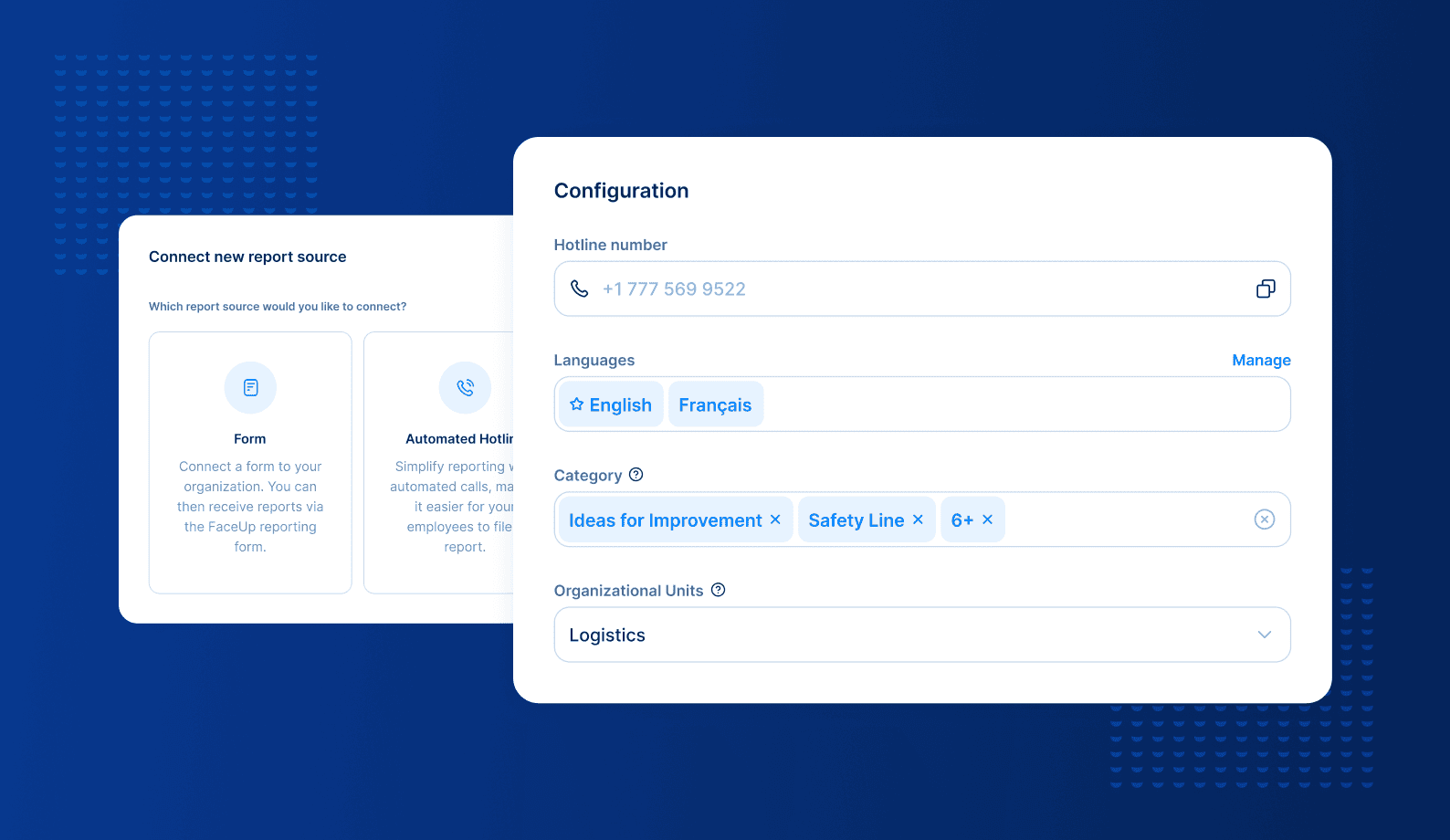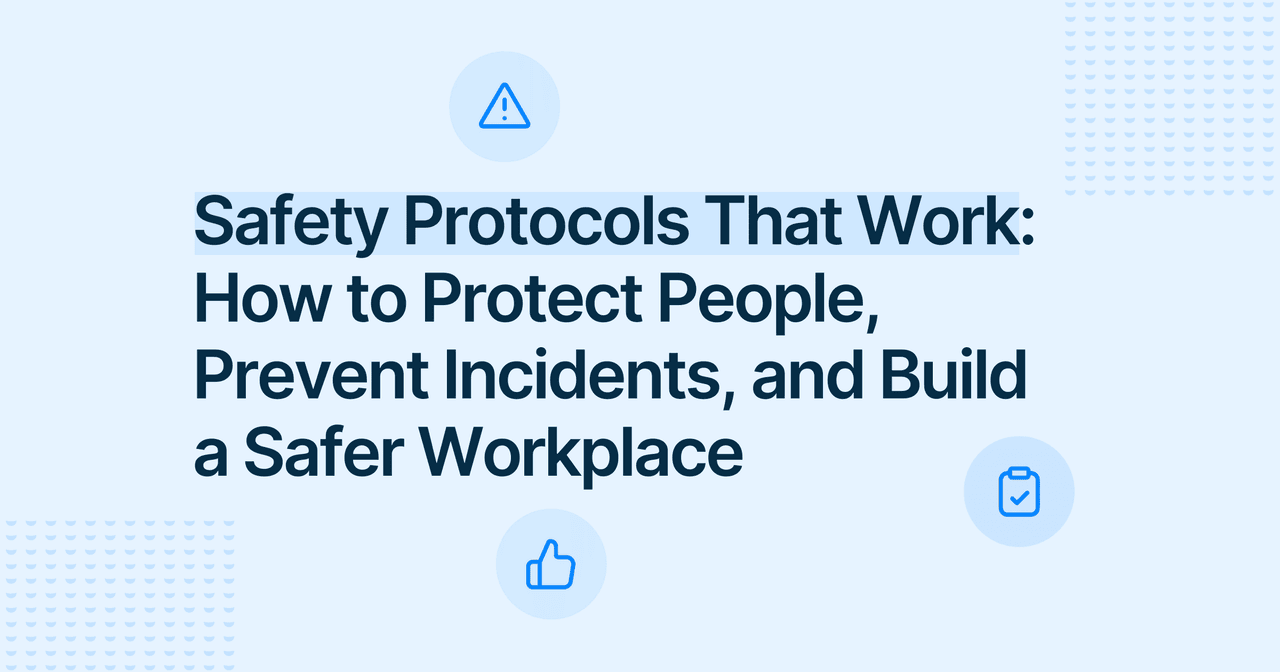What Is an Ethics Hotline? A Story About Speaking Up at Work
Whistleblowing

Alaa El-Shaarawi
Copywriter and Content Manager
Published
2023-07-19
Reading time
6 min


Table of contents
Subscribe to our newsletter
What Is an Ethics Hotline? A Story About Speaking Up at Work
Alex had been at their company for three years. On paper, everything looked fine. A steady job, friendly coworkers, and a clear path for career growth. But lately, things felt off. It all started with a colleague being passed over for a promotion.
Then there was that client expense report that seemed a little inflated, and then there were the whispers about favoritism in team assignments. Alex wanted to speak up, but the thought of retaliation, being labeled a troublemaker, or losing opportunities, made them hesitate.
Then they remembered the company’s ethics hotline, a confidential, secure way for employees to report concerns. With it, Alex could submit a report anonymously, track its progress, and even follow up without revealing their identity.
This is a story about how such a system can help protect employees and build trust.

What Is an Ethics Hotline?
An ethics hotline, sometimes called a whistleblowing hotline, compliance and ethics hotline, or speak-up line, is more than just a phone number. It’s a reporting mechanism that allows employees and other stakeholders to raise concerns about misconduct, unethical behavior, or violations of company policies.
Depending on your organization, it might also be called:
- Whistleblowing hotline
- Ethics reporting hotline
- Ethics and compliance hotline
- Speak-up line
Some companies even use online reporting tools or mobile apps, giving employees a confidential way to report issues anywhere, anytime.
The modern ethics hotline is designed to:
- Allow confidential and anonymous reporting
- Provide secure follow-up between the whistleblower and the investigator
- Offer comprehensive case management for HR and ER teams
Support compliance with regulations like the EU Whistleblowing Directive or the Sarbanes-Oxley Act.
How Does an Ethics Hotline Work?
When Alex decided to report a concern, they logged into the company’s online whistleblowing platform. Here’s what happened step by step:
- Submitting the report: Alex typed out the observations, including dates, involved parties, and a clear description of the concern.
- Anonymous or confidential option: Alex could choose to remain anonymous while still receiving updates through a secure messaging system.
- Case assignment: The report went to an assigned investigator or case manager, trained to handle such concerns professionally.
- Investigation and follow-up: The investigator reviewed the submission, asked clarifying questions if necessary, and ensured the matter was investigated thoroughly.
- Resolution and corrective action: Once confirmed, the company took appropriate steps, whether policy adjustments, training, or disciplinary measures, to resolve the issue.
Modern ethics hotlines also allow organizations to track trends, generate metrics on workplace culture, and identify areas for improvement, turning reports into insights that strengthen the company over time.

Who Can Be a Whistleblower?
Alex wasn’t sure if reporting was “their place.” The truth is that anyone connected to an organization can be a whistleblower This includes:
- Employees
- Contractors or freelancers
- Suppliers or vendors
- Even external partners who notice wrongdoing
There’s a wide range of reasons why someone might choose to file a concern with the company. Examples of what whistleblowers might report include:
- Bullying or harassment
- Fraud or theft
- Conflicts of interest
- Safety violations
- Misuse of company resources
No matter your role, if you see unethical behavior or a breach of company policies, you have the right to speak up.
When Should You Use an Ethics Hotline?
You should use the hotline whenever you notice:
- Unethical behavior
- Illegal activity
- Violations of company policies or the code of conduct
- Safety concerns or conflicts of interest
Even if the issue seems minor, reporting early can prevent bigger problems. Many organizations find that small reports signal systemic issues, and handling them quickly can save time, money, and reputational damage.
What Happens When You Call or Submit a Report?
Many people wonder: “Are ethics hotlines really anonymous?” or “What happens when you call the ethics hotline?” Here’s how it works in practice:
- Anonymity is protected: Modern systems like FaceUp allow employees to report without revealing their identity.
- Reports are reviewed by trained investigators: Every submission is assigned to a responsible case manager.
- Follow-up is possible: Even anonymously, employees can respond to questions from investigators.
- Corrective action is taken when necessary: Reports lead to actions such as training, policy updates, or disciplinary steps.
Alex felt safe submitting their report because they knew the platform offered confidential reporting, secure channels, and a clear reporting process.
Why Companies Have Ethics Hotlines
Companies implement ethics hotlines for multiple reasons:
- Protecting employees: Whistleblowers are shielded from retaliation.
- Early detection of issues: Small concerns reported through the hotline can prevent bigger problems.
- Compliance and legal requirements: Organizations in the EU with more than 50 employees must follow the EU Whistleblowing Directive; others may need to comply with local regulations or certifications.
- Fostering a speak-up culture: Employees feel heard, which improves trust and engagement.
- Preserving reputation: Addressing issues internally protects the organization from public scandal.
- Generating insights: Reporting metrics can reveal recurring problems and areas for improvement.
Think of it as a compass for ethical behavior, guiding the company toward transparency and integrity.
Best Practices for Using a Whistleblowing Hotline
Alex’s company made it easy to report, but success isn’t just about providing a tool, but also about how you use it.
1. Communicate Clearly
Employees need to know what the ethics hotline is for, how to use it, and who is responsible for investigating reports.
2. Provide Training
Regular guidance helps employees feel confident using the system. Everyone should understand:
- What qualifies as reportable misconduct
- How reports are handled
- Their rights and protections
3. Make Reporting Safe
- Protect anonymity wherever possible
- Set clear policies to prevent retaliation
- Encourage follow-up communication through secure channels
4. Track and Learn
Use the data from reports to identify trends, address systemic issues, and improve workplace culture.
Choosing the Right Ethics Hotline
Not all ethics hotlines are created equal. You may see options like AllVoices, EQS Integrity Line, or Globaleaks. While these platforms cover basic reporting, they vary in ease of use, depth of insight, and how well they protect employees and support company culture.
- AllVoices lets employees report anonymously and tracks cases, but it can feel limited for larger teams or complex investigations.
- EQS Integrity Line works well for global compliance, yet its interface can be complicated, making it intimidating for everyday employees to submit concerns.
- Globaleaks is open-source and highly flexible, but it often requires extra technical setup and ongoing maintenance.
FaceUp stands apart because it combines security, simplicity, and insight in one platform:
- Feature-rich case management: Every report can be tracked, categorized, and handled efficiently, making it easier to manage multiple cases without losing oversight.
- Secure, anonymous reporting: Employees can speak up safely, knowing their identity is protected.
- User-friendly interface: The platform is intuitive, reducing barriers for employees and encouraging more honest reporting.
- Actionable insights and analytics: Organizations can spot trends, assess risks, and take proactive steps to improve policies and culture.
FaceUp provides a platform that safeguards whistleblowers while strengthening organizational integrity. Unlike other platforms, it combines enterprise-ready features with ease of use, helping companies create a culture of trust, accountability, and proactive risk management.
How Reporting Makes a Difference
Alex’s report revealed discrepancies in client expense claims. Because the company had a trusted reporting system, the investigation:
- Identified fraudulent activity before it escalated
- Provided training to prevent recurrence
- Improved internal controls
- Strengthened employee trust in leadership
By speaking up, Alex didn’t just protect the company, they helped shape a culture where ethical behavior is valued.
The Power of a Trusted Voice
Alex’s story shows why a trusted ethics reporting and whistleblower hotline service matters. With the right tools and policies:
- Employees can report misconduct safely
- Companies can act quickly and fairly
- Ethical behavior becomes part of the workplace culture
A comprehensive ethics hotline isn’t just your company’s compliance tool. It’s a foundation for trust, transparency, and integrity.
If your organization wants to build a workplace where employees feel safe to speak up and unethical behavior is addressed early, book a demo with FaceUp today.
Ethics Hotlines FAQ
Keep Reading

Alaa El-Shaarawi2026-02-108 min
Employment Law Violations: Common Cases, Legal Risks, and How to Report Them
Legal & Compliance

Alaa El-Shaarawi2026-02-098 min
Physical Safety in the Workplace: PPE, Risk Prevention, and Legal Responsibilities
Workplace Environment

Marie Roland2026-02-033 min
Transform HR Operations and Employee Engagement with Rippling + FaceUp
Workplace Environment

Alaa El-Shaarawi2026-02-029 min
Safety Protocols That Work: How to Protect People, Prevent Incidents, and Build a Safer Workplace
Workplace Environment



